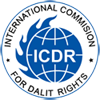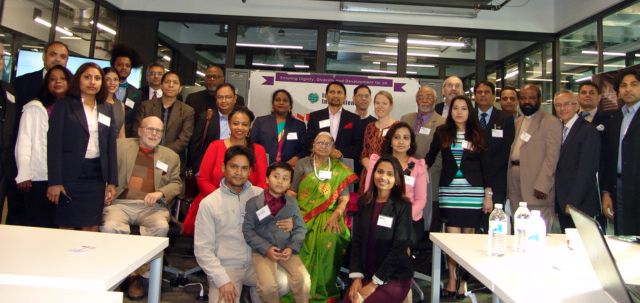
ABOUT US
ICDR International is a leading global movement of people striving to eliminate Caste or Work and Descent-based Discrimination (CWDD), inequality and injustice. We campaign for the rights and dignity of nearly 280 million Dalits, marginalized and underprivileged people worldwide who face CWDD and Social Exclusion. With over 255 members across the globe, ICDR collaborates, networks, and provides technical support for its associates, civil society, government agencies, and the communities, as they strive to promote equal opportunities, civil rights, dignity, and rule of law. We empower Dalits, marginalized and underprivileged people, who often face disproportionate challenges and obstacles living a dignified life. We investigate, expose discrimination, educate and mobilize the public, provide community services, and campaign to leverage for changes in policy and transform societies.
OUR PURPOSE
We work to defend and promote the inherent dignity, equality, and rights of underprivileged, marginalized and Dalit people worldwide.
The Universal Declaration of Human Rights states that "the recognition of the inherent dignity and of the equal and inalienable rights of all members of the human family is the foundation of freedom, justice and peace in the world." ICDR defends and promotes the dignity and rights of Dalits and other underprivileged and marginalized people worldwide. ICDR provides public interest legal and policy services for people fighting caste and descent-based discrimination, exclusion and injustice. We promote dignity, equality and the rights of Dalits and other marginalized and underprivileged people worldwide through campaigning, networking, collaborating and promoting dialogues between policy-makers, civil societies and diverse communities.
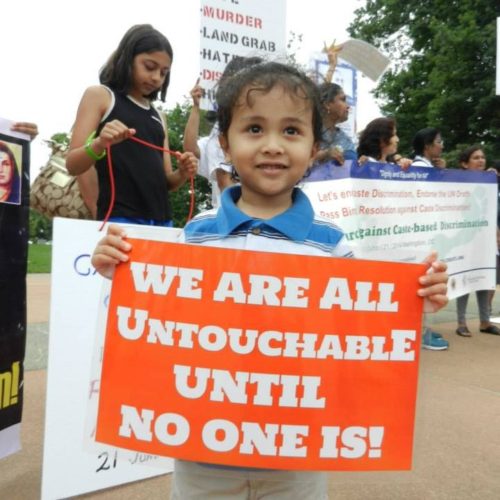
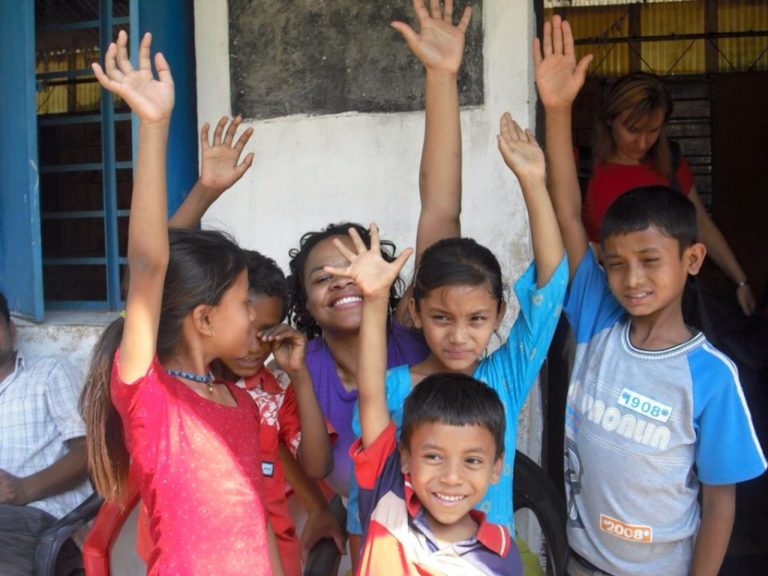
OUR MISSION
-Increase public understanding of and respect for constitutional and international human rights laws and obligations, and hold governments accountable under law;
-Work for equality, diversity, socio-political inclusion and equal opportunity, including human rights, affirmative legal policies, and meaningful access to justice for all people;
-Eliminate caste- or descent-based discrimination and all other forms of discrimination, inequality and injustice;
-Promote the dignity and the rights of Dalits and other underprivileged and marginalized people;
-Provide benefits, programs and services that promote members’ and allies’ institutional and professional growth and quality of service and life;
-Provide and promote pro-bono public interest services for minorities, Dalits, and other underprivileged and marginalized people.
OUR HISTORY
2001-2004
In 2001, Nepali human rights advocate and lawyer Dil Bishkarma popularly known as D.B. Sagar engaged and participated in the United Nations World Conference of Racism, Racial Discrimination, Xenophobia and Related Intolerance 2001 (WCAR, 2001), which provided, for the first time, an opportunity to strengthen the voice of underprivileged, marginalized and Dalit populations at the international level. During the WCAR 2011, he and other unrecognized advocates realized a lack of a global platform of grassroots-driven organizations that directly represents underprivileged, marginalized, and Dalit populations as well as supported by the international community.
In 2004, D.B. Sagar, then President of Dalit NGO Federation of Nepal, worked with other Nepal-based bilateral, multilateral, inter/national NGOs and grassroots organizations arranged International Consultation on Caste-based Discrimination in Kathmandu, Nepal. This event seeded a milestone idea to create a global platform of grassroots-driven organizations of underprivileged, marginalized, and Dalit populations and the international community of human rights organizations.
The response to the new idea was enormous and helped to mobilize hundreds of organizations to efforts to educate and alert governments and the international community – including the United Nations - to the many ways that the human rights of Dalits and other underprivileged people were being routinely violated. These efforts by human rights activists and leaders in different countries would eventually evolve into the backbone of the organization that became the International Commission for Dalit Rights (ICDR) or, as recently renamed, ICDR International.
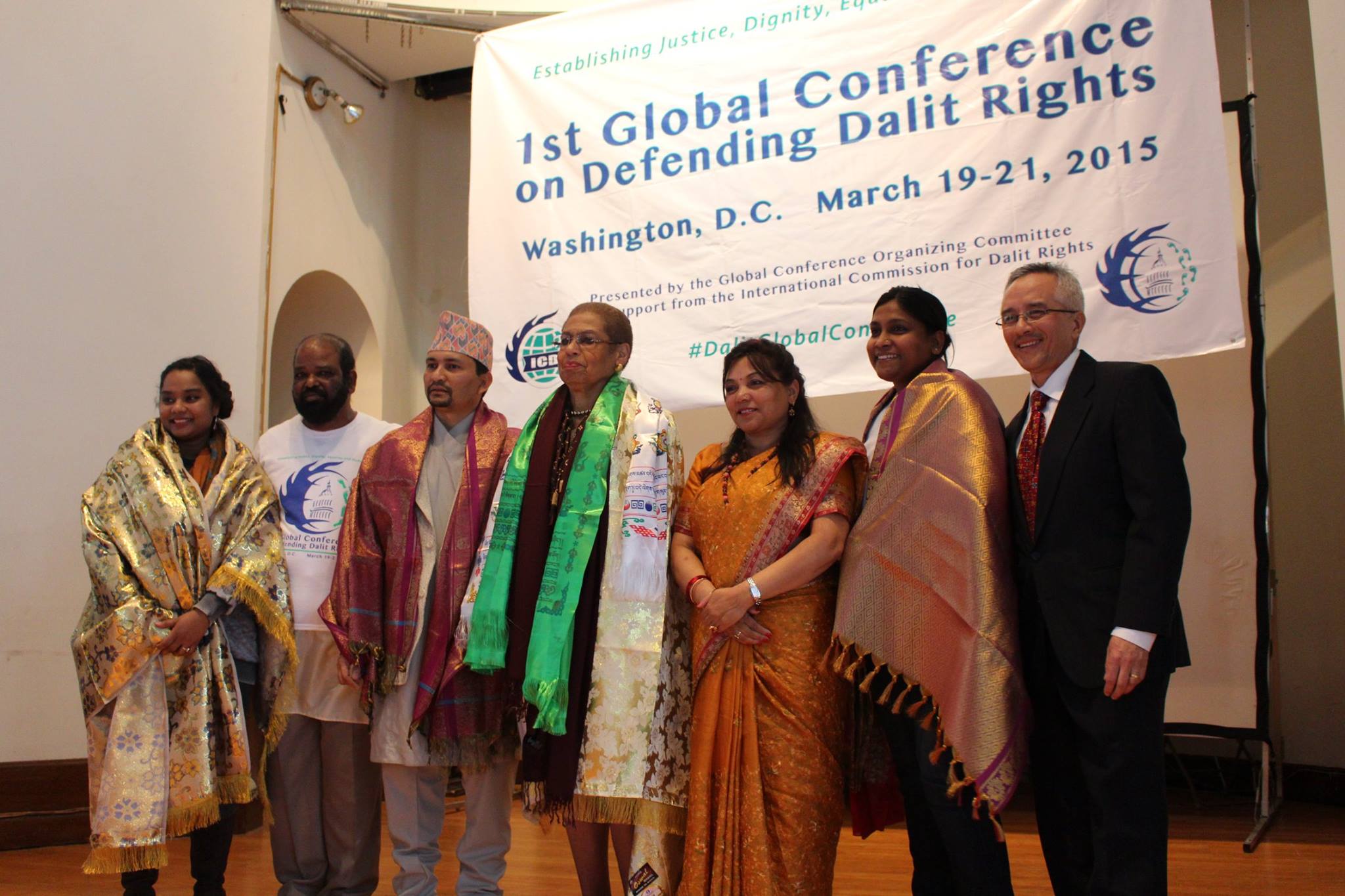
2008-2013
In 2008, Fulbright scholar and economist Dr. Damber K Gurung; Professor (Emeritus) of Economics at University of Michigan Dr. Thomas Weisskopf; Professor of Sociology at Florida State University Dr. Mary Cameron; Professor of Anthropology at Wake Forest University Dr. Steven Folmar; Peace Volunteer at Peace Corps, and Ms. Wendy Serafin, became the key members to set up the ICDR in Washington, D.C., United States. Ashoka Fellow and Founder of National Confederation of Dalit & Adivasi Organizations of India Mr. Ashok K Bharti provided leadership and served as the first Chairperson of the ICDR’s Board of Directors until 2011. In 2011, Mr. M. Farook Sait Esq., then Special Counselor to the Assistant Secretary for Civil Rights at the U.S. Department of Agriculture and a senior attorney at law, had served as the Chair of the Board from 2011-2013. Likewise, Mr. Gajadhar Sunar, Dalit rights leader and then National President of Dalit NGO Federation of Nepal, and Mr. Narayan Charmakar, human rights lawyer in Bangladesh have served as Vice-Chair and a Member respectively of the organization’s International Governing Council since 2013.
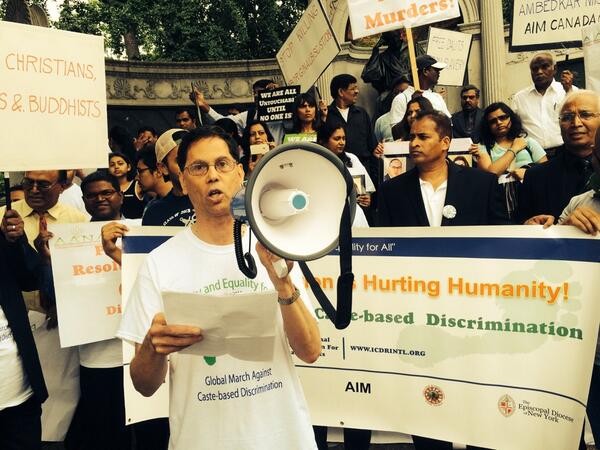
2015-PRESENT
In recent years, ICDR expanded its activities to include a campaign to encourage specific anti-discrimination legislation and relevant policy measures for governments and their agencies, UN and other international agencies, educational institutions, non-governmental organizations, and the private sector. We have been working for the recognition and the Effective Elimination of Discrimination based on Caste, or Work and Descent and All Other Forms of discrimination and prejudice. Our work on this issue is to produce and update Caste Freedom Index as a key component under the existing international human rights principles, obligations, and frameworks. In 2014, we along with Diaspora, Ambedkarite, and inter/national organizations, for the first time in history, organized the Global March against Caste-Based Discrimination in Washington D.C., particularly in front of the White House and US Congress. The objective of the Global March was to strengthen links among US and international organizations fighting caste or work and descent-based discrimination and to urge US Congress to pass a binding resolution against Caste and all forms of discrimination that expands the geographic scope of the House’s historic concurrent resolution on untouchability in India.
In 2015, ICDR sponsored the First Global Conference on Dalit Rights and adopted the Dalit Rights Global Declaration 2015, a global framework to promote the rights and dignity of Dalits, marginalized, and underprivileged populations. ICDR continues to focus on protecting dignity, rights, and lives from caste-based violations, social conflict, and exclusion or discrimination in caste-affected countries. We have also published reports that have helped spark grassroots, state, federal, and international policy reforms, inclusion, and hold government accountable as well as corporations for social responsibility under the law. In 2015, ICDR worked to ensure rights and proportionate representation of Dalit, underprivileged and marginalized populations in the New Constitution of Nepal.
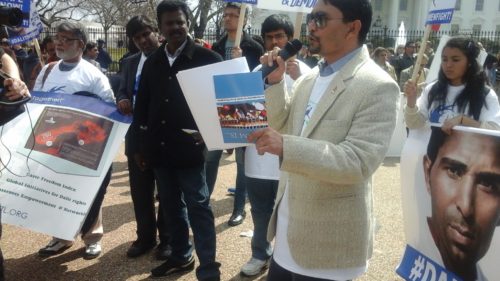
2006-2007
On the occasion of International Day of the Elimination of Racial Discrimination (March 21, 2006), the general meeting of leaders and activists in London formally endorsed the General Charter of the ICDR and announced the formation of the ICDR International as a global organization to defend and promote the dignity and rights of underprivileged, marginalized and Dalit people worldwide. The General Charter is a fundamental set of principles and policies that stand beside and supports the International Convention on the Elimination of All Forms of Racial Discrimination, the Universal Declaration of Human Rights, and other international human rights conventions.
The General Charter expresses the vision of the ICDR is to be a leading organization that promotes the rights of diverse underprivileged populations and to work with other global human rights and social justice organizations in common efforts to establish, protect, and strengthen Dalit Rights in the contemporary world. The landmark General Charter is a powerful reaffirmation of ICDR values.
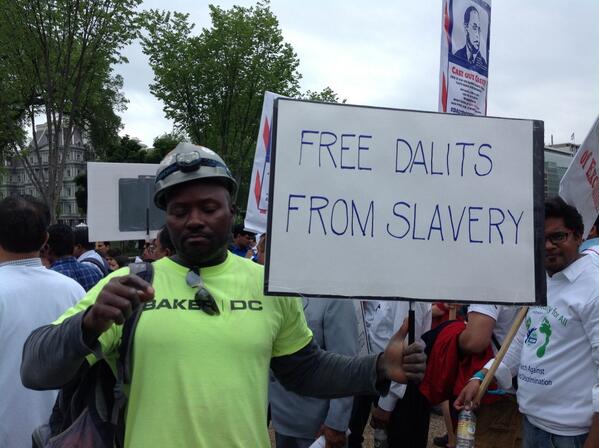
2013-2015
In 2013 and beyond: ICDR International expanded its activities and leadership throughout South Asia, Europe, the U.S., and Diaspora. ICDR started reformation and has become an emerging global organization under the new leadership of a diverse Board of Directors. Donald L. Zimmerman, Ph.D. has provided leadership and served as the Co-Chair of the Board of Directors since 2013. In 2012, an emerging social and economic justice advocate Ms. Elizabeth Clay Roy joined the team and served as Vice President and later Board of Director. A veteran of the U.S. Agency for International Development (USAID) and a human rights/rule of law expert Mr. Rick Gold joined as a Board Director and Co-Chair of the US Legislative Initiative and Global Initiative since 2012. Mr. Krishna Sob, an international development practitioner became a Board of Director and has served as Co-Chair of the Global Conference Organizing Committee and Diaspora Engagement Initiative since 2012. Dr. Maria Suchowski, a statistical evaluation and measurement consultant working with Statistics Without Borders (SWB) on various international aid projects joined the ICDR and has been served as a Board of Director and Co-Chair of Committee of Caste Freedom Index. A senior manager and statistician with the UK government’s Office for National Statistics, Mr. Myer Glickman- MFPH FBMIS FHRIM became a part of the ICDR as a Board of Director and Leading Member of the Caste Freedom Index committee. In 2014, a leading social entrepreneur and philanthropist Mr. Raj Cherukonda joined the ICDR as a Board of Director and Co-Chair of Diaspora Engagement Initiative among the other leading responsibilities in the organization. Dr. Purvi Mehta, Assistant Professor at Colorado College became a Board of Director and has served as Co-chair of Academic Initiative since 2015.
Additionally, in 2015, ICDR’s work was acknowledged by the senior officers at the US Department of State. In the appreciation letter, the officer said “I am writing to thank you once again for helping us to better understand, and elevate the visibility of, caste discrimination in South Asia. In part because of your good work, we included a specific recommendation in the November 2015 cycle of the Nepal Universal Periodic Review (UPR) on engaging and addressing the needs of Dalits in disaster relief. This is a first for our Nepal engagement through the UN mechanism, and it has set an excellent precedent for the region.”
In 2016, ICDR extended its public interest services in the U.S. through a pro bono legal and community services program for immigrants and low-income communities to protect from prejudice and unlawful treatment by domestic hate groups and other extremists. we have hundreds of multi-talented experts, volunteers, and leaders who drive the ICDR’s day-to-day operations. Some of them are Ms. Kenya Tyson, Esq., Policy Advisor; Dr. Lasonja Kennedy has served as CFI Consultant; Ms. Swati Sawant, Esq. has served as program Director; Ms. Prachi Vakharia has served as Head of Strategy.
In 2019, Ms. Neha Kumar, an Australian Attorney, and Rev Gideon Jebamani, Ph.D. have served as Board of Director; Mr. Krishna Bishwakarma has served as IT Coordinator, and Ms. Marielle Constanza has led the organization as Strategic Partnerships Director.
